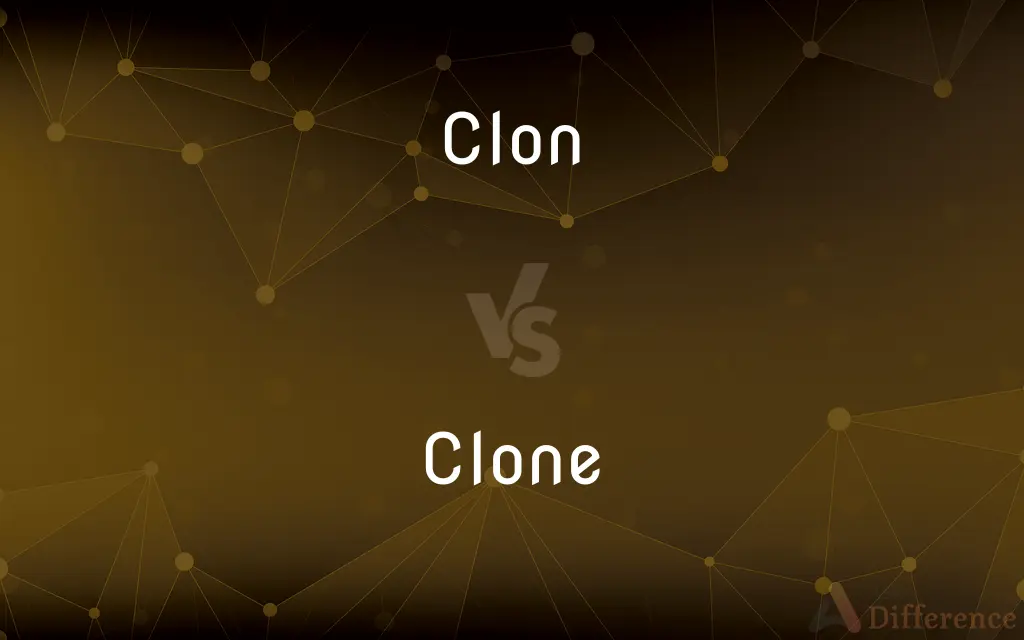Clon vs. Clone — What's the Difference?

Difference Between Clon and Clone
ADVERTISEMENT
Compare with Definitions
Clon
A group of genetically identical cells or organisms derived from a single cell or individual by some kind of asexual reproduction
Clone
A group of cells or organisms that are descended from and genetically identical to a single progenitor, such as a bacterial colony whose members arose from a single original cell.
Clone
An organism developed asexually from another and genetically identical to it, such as an animal produced from an egg cell into which the nucleus of an adult individual has been transferred.
Clone
A DNA sequence, such as a gene, that is transferred from one organism to another and replicated by genetic engineering techniques.
Clone
One that copies or closely resembles another, as in appearance or function
"filled with business-school clones in gray and blue suits" (Michael M. Thomas).
ADVERTISEMENT
Clone
To make multiple identical copies of (a DNA sequence).
Clone
To create or propagate (an organism) from a clone cell
Clone a sheep.
Clone
To reproduce or propagate asexually
Clone a plant variety.
Clone
To produce a copy of; imitate closely
"The look has been cloned into cliché" (Cathleen McGuigan).
Clone
To grow as a clone.
Clone
A living organism (originally a plant) produced asexually from a single ancestor, to which it is genetically identical.
Clone
(cytology) A group of identical cells derived from a single cell.
Clone
A copy or imitation of something already existing, especially when designed to simulate it.
Clone
(informal) A person who is exactly like another person, in terms of looks or behavior.
Clone
(transitive) To create a clone of.
Clone
A group of organisms derived from a single individual by some kind of asexual reproduction; - used mostly of microorganisms such as bacteria and yeast.
Clone
An individual organism containing a genetic complement identical to that of another organism, produced by using the genetic material from the second animal in a non-sexual reproduction process.
Clone
Something virtually identical to another object.
Clone
To make a clone from; to make identical copies of an organism by a non-sexual process of reproduction.
Clone
To grow colonies of a microorganism by spreading a suspension of the microorganism onto a solid growth medium (such as in a Petri dish), at a concentration such that individual colonies will grow from single cells sufficiently well separated from other colonies so that pure cultures derived from a single organism can be isolated.
Clone
To make large quantities of a segment of DNA by inserting it, using biochemical techniques, into the DNA of a microorganism, and growing that microorganism in large numbers; as, to clone the gene for growth hormone.
Clone
A person who is almost identical to another
Clone
A group of genetically identical cells or organisms derived from a single cell or individual by some kind of asexual reproduction
Clone
An unauthorized copy or imitation
Clone
Make multiple identical copies of;
People can clone a sheep nowadays
Share Your Discovery

Previous Comparison
Gorger vs. Gypsy
Next Comparison
Rights vs. Obligation














































